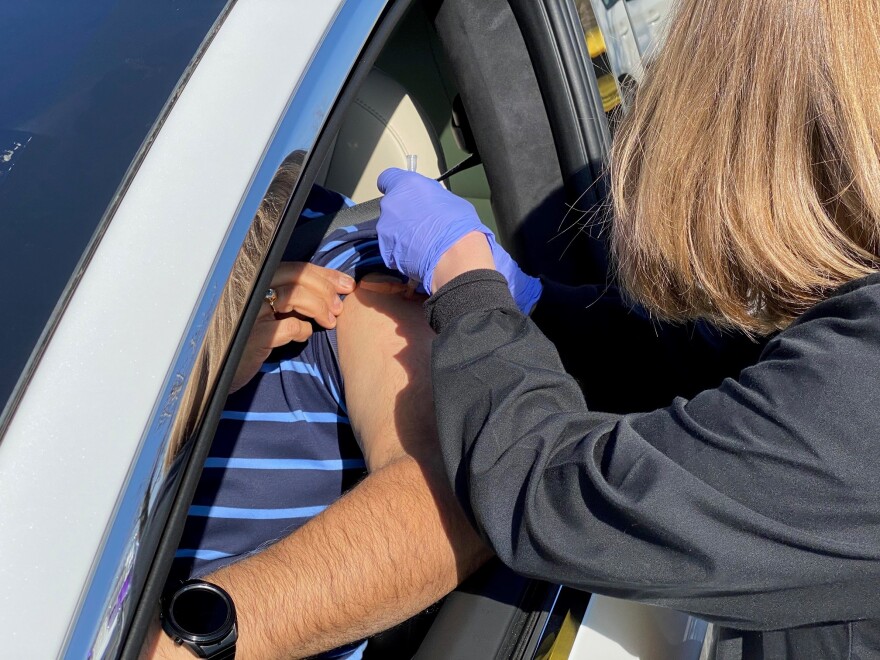People with compromised or weakened immune systems also benefit from the COVID-19 vaccine, new data suggest — but antibody responses vary widely.
Last week UPMC researchers released pre-print data on 489 vaccinated patients with a multitude of immunocompromised conditions.
Transplant patients had the lowest level of antibodies. After someone receives a new heart or lung, they take immunosuppressants medications so as to prevent their body from attacking the new organ.
Lead author Dr. Ghady Haidar, a UPMC infectious disease physician who specializes in transplant patients, said the more recent the transplant, the lower the antibody response.
“Biologically that makes sense, because it’s really in the first year or so [that] your immune system is actually the weakest; because that’s when we really need to make sure you’re on a very aggressive regimen of anti-rejection meds,” he said.
Haider noted that antibodies comprise just one aspect of the immune system, which is a complex network of organs and different cells. Therefore, it's likely that people with little to no antibody response still reap some benefit from vaccination.
One immunocompromised group that saw a particularly high level of antibody response was patients with well-controlled HIV. These patients saw levels of antibody production similar to those of vaccinated people who are HIV-negative.
That did not surprise Lehigh Valley Hospital’s Dr. Margaret Hoffman-Terry, who has been studying the response of HIV patients to Pfizer’s COVID vaccine. She said the robust response is due to antiretroviral medications, which allow an HIV patient's immune system to function normally.
“What we had 20 years ago and what we have now are very different animals in terms of how vaccines [perform] in people who have [HIV],” said Hoffman-Terry, who chairs the American Academy of HIV Medicine’s public policy committee.
When doing the initial vaccine trials, drug makers excluded people with certain conditions like HIV and cancer. That has made it difficult for clinicians to advise some patients on the vaccine. Therefore, UPMC decided to release the data before peer review, which is when experts evaluate a study prior to publication.
“The folks at UPMC clarified or enforced what we already suspected,” said Dr. Julian Schink, the chief medical officer for the Cancer Treatment Centers of America.
The study found that depending on the type of cancer, antibody response among those with the disease ranged from 55% to 83%.
Schink said the findings validate how important it is for his patients to get vaccinated, even if their antibody response might be lower. This is what Haider hopes people take from the data.
“There are other aspects of the immune system that aren’t measured by antibody tests — T-cells and what not,” he said. “Something is better than nothing.”













